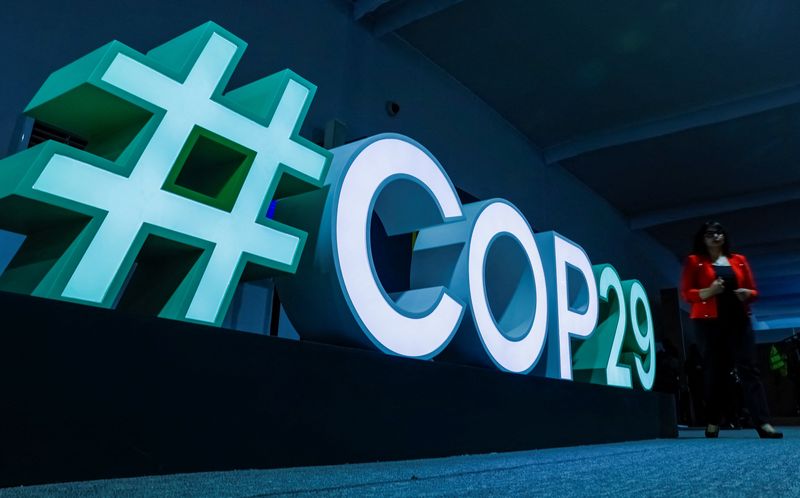By Virginia Furness and Kate Abnett
BAKU (Reuters) – Countries at the two-week COP29 climate summit on Monday gave the green light to quality standards for carbon credits that are key to launching a U.N.-backed global carbon market that would finance projects that reduce greenhouse gas emissions.
The green light was an early deal on day one of the UN conference in Baku, Azerbaijan. Governments are also expected to reach a climate finance deal, although expectations have been dampened by Donald Trump’s US election victory.
President-elect Trump has said he will once again withdraw the US from the global Paris climate agreement, which lays the foundation for the planned UN-backed carbon market.
However, Juan Carlos Arredondo Brun, a former climate negotiator for Mexico who now works for carbon market data and the acidification company Abatable, said the approval “will bring us closer to making the carbon market operational before any single party could decide to walk away from the Paris Climate Negotiations.” Agreement”.
Monday’s deal could see a U.N.-backed global carbon market, years in the making, launched as early as next year, a negotiator said.
Carbon credits theoretically allow countries or companies to pay for projects anywhere in the world that reduce or remove carbon emissions from the atmosphere, and use the credits generated by those projects to offset their own emissions.
Examples of projects could be the cultivation of CO2-absorbing mangroves, or the distribution of clean stoves to replace polluting cooking methods in poor rural communities.
The market could provide a route for U.S. companies to continue participating in global efforts to tackle climate change, even if Trump were to quit the Paris accord. If that were to happen, U.S. companies would still be able to buy credits on the U.N.-backed market to meet their voluntary climate goals.
While the standards approved in Baku were intended to address concerns that many projects are not delivering the climate benefits they claim, campaigners said they fell short in areas such as protecting the human rights of communities affected by the projects.
“Many financiers are concerned that the markets are not stable enough and credible enough to allow more investment in them,” Rebecca Iwerks, co-director of the nonprofit Namati, told Reuters.
“It could actually hinder the development of the market if you don’t have a strong standard,” she said of Monday’s deal.
Some negotiators were also critical of the way the deal was reached. The standards were approved by a small group of technical experts, with some countries saying they had not been given a fair vote on the final rules.
Kevin Conrad, executive director of the Coalition for Rainforest Nations and former climate envoy to Papua New Guinea, said the board of trustees has exceeded its mandate.
“We endorse what they did, not the way they did it,” he said.

Countries at COP29 will also look to finalize other rules aimed at creating a robust market.
The International Emissions Trading Association, a business group that supports global carbon markets, has said total trade in the U.N.-backed market could generate $250 billion a year by 2030 and cut 5 billion tons of carbon production annually.


